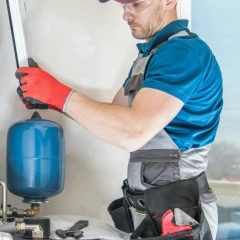













Engine failure is one of the most stressful and expensive car problems you can face—but is it something your auto insurance will cover? The answer depends on the cause of the failure and the coverage you’ve added to your policy. Here's what drivers need to know.
Before looking at coverage options, it helps to understand what can actually lead to engine failure. Common causes include:
The cause of the failure is what determines whether it may be covered under your car insurance, especially when reviewing the structure of your auto insurance policy.
Engine failure coverage depends entirely on what caused the failure and what type of coverage you have. Here’s how different scenarios typically work:
Engine failure caused by an accident you didn’t cause:
If another driver hit your vehicle and it led to engine damage, their liability insurance may cover repairs.
Engine failure caused by an accident you caused:
If you have optional collision coverage, engine repairs from the accident may be covered—depending on your policy terms.
Engine failure from weather or external damage (e.g., flood, fire, falling object):
This may be covered if you carry comprehensive coverage, which protects against non-collision events.
Engine failure from wear and tear or lack of maintenance:
This is typically not covered under standard auto insurance. These types of failures are considered part of regular vehicle upkeep.
Engine failure from internal mechanical breakdowns:
Auto insurance generally doesn’t cover mechanical issues unrelated to an accident. However, some extended warranties or service contracts might help.
Stranded from a breakdown?
Roadside assistance add-ons may help with towing, battery jumpstarts, and getting your vehicle to a shop—though they won’t cover repair costs directly.
💡 Always review your policy details or speak with your insurer to understand what’s included in your coverage.
Even though standard insurance may not cover all types of engine failure, there are ways to stay protected:
If you believe you need towing, feel free to reference our guide on coverage for towing.
